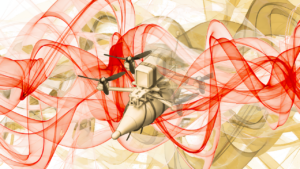Last week John Negroponte, Director of National Intelligence, announced “Intellipedia,” a system that will allow analysts and other officials to collaboratively add and edit content on U.S. Government’s classified intelligence network (Intelink Web), much like the World Wide Web’s well known Wikipedia site. As reported by Reuters [“U.S. intelligence unveils spy version of Wikipedia,” Washington Post, 31 October 2006]:
A “top secret” Intellipedia system, currently available to the 16 agencies that make up the U.S. intelligence community, has grown to more than 28,000 pages and 3,600 registered users since its introduction on April 17. Less restrictive versions exist for “secret” and “sensitive but unclassified” material. The system is also available to the Transportation Security Administration and national laboratories.
The philosophy behind the network is many people are smarter than one person. The first tests of this philosophy, according to the article, will be a national intelligence estimate on Nigeria as well as the State Department’s annual country reports on terrorism. Whether this approach improves past analytic products has yet to be proven, but it is an interesting development. One of the challenges that collaborative intelligence reports have suffered from in the past is that when multiple analysts (or agencies) are preparing them, conclusions included in the final product generally turn out to be the lowest common denominators, meaning excellent analysis is often left on the cutting room floor.
Another challenge with collaborative efforts is accountability. Wikipedia users understand that not everything that makes it on to that site is reliable (although the record is pretty good). Accountability in the intelligence community, however, goes beyond the reliability of posted information to include the protection of sensitive information.
The system, which makes data available to thousands of users who would not see it otherwise, has also stirred qualms about potential security lapses following the recent media leak of a national intelligence estimate that caused a political uproar by identifying Iraq as a contributor to the growth of global terrorism. “We’re taking a risk,” acknowledged Michael Wertheimer, the intelligence community’s chief technical officer. “There’s a risk it’s going to show up in the media, that it’ll be leaked.”
In a world where connecting the dots is critical, officials believe the benefits outweigh the risks. Not only do they think this is an excellent venue for sharing information, they believe the resulting products will be better.
It could lead to more accurate intelligence reports because the system allows a wider range of officials to scrutinize material and keeps a complete, permanent record of individual contributions including dissenting points of view. … Intelligence officials are so enthusiastic about Intellipedia that they plan to provide access to Britain, Canada and Australia. Even China could be granted access to help produce an unclassified intelligence estimate on the worldwide threat posed by infectious diseases.
Automated rule sets are an excellent way to ensure security on such systems, providing data when needed to those who have proper access and a need to know; hence, increasing the resiliency of the network. Commenting on this development, columnist Frank Ahrens, wrote [“A Wikipedia of Secrets,” Washington Post, 5 November 2006]:
In theory, Intellipedia, like Wikipedia, is a great idea: Citizen editors, or in this case, intelligence assets, enter their information unfiltered onto the great database. Then it becomes easily searchable by any user. For instance, if the agency preparing the report on Nigeria punches in that country’s name, it could find intelligence that an asset has entered from the field in Africa, or data entered by an analyst in a cubicle in Langley. … Of course, Intellipedia probably has its downsides, just like as Wikipedia does. Knowing only what the government tells us about Intellipedia, we don’t know how tight the peer review is. On Wikipedia, administrators will lock users out of an entry if it is being vandalized, typically by partisans, such as the Wikipedia entry on Israel during its war with Hezbollah. One can only assume the top-secret version of Intellipedia has the same administrative safeguards, or at least a more collegial attitude among its contributors. There is also the concern that intelligence will be politicized, such as happened in the run-up to the war in Iraq.
On the whole, any system that improves information sharing is a step in the right direction. I suspect that new collegial, and perhaps unexpected, relationships will be developed as a result of this system. Often we have only a glimmer of how people will use new technologies once they are placed in peoples’ hands. Intellipedia will be no different. Creative people will likely find unique and innovative ways to use the system.




